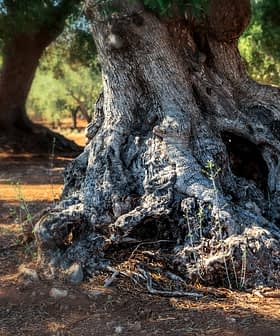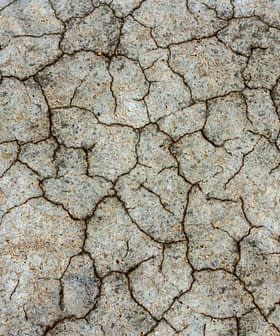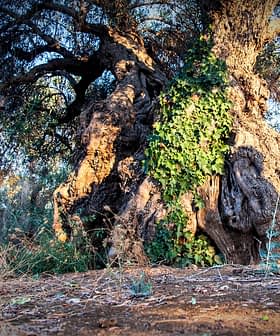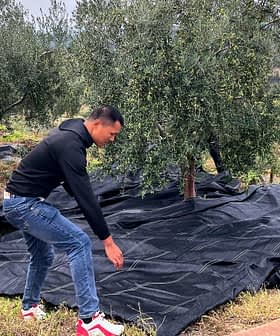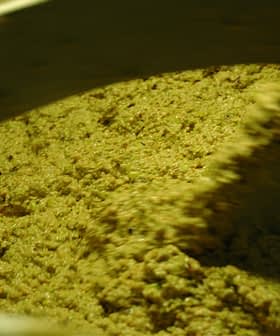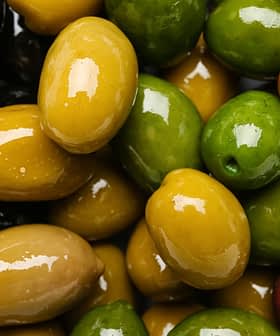Lithuanian Firm Seeks Patent for Drug to Prevent Xylella
A Lithuanian environmental engineering firm has developed a new drug to prevent the spread of Xylella fastidiosa and treat infected plants, according to its chief executive. The drug, which uses nanodiamonds, has shown high efficacy in suppressing the bacteria without harming plants or humans, and is currently being patented.
A Lithuanian environmental engineering firm has developed a new drug to prevent the spread of Xylella fastidiosa and treat infected plants, its chief executive told Olive Oil Times.
Yaroslav Churakov of Quantum Satis Engeneering said the company was working on a treatment to protect seeds from fungi and bacteria during germination when they determined that it may help olive growers with Xylella fastidiosa.
The drug penetrates the internal tissues and fluids and begins to circulate in the plant, suppressing pathogenic microorganisms.
Xylella fastidiosa is one of the most dangerous plant bacteria in the world. Two subspecies – multiplex and pauca – infect olive trees and cause Olive Quick Decline Syndrome, which has no cure.
According to the European Commission, Xylella fastidiosa causes an estimated €5.5 billion in production losses annually. The bacteria have been identified in France, Italy, Portugal and Spain.
See Also:Improving Olive Grove Biodiversity Helps Fight Xylella Fastidiosa and Climate ChangeHowever, Churakov claims his company’s new drug can kill Xylella fastidiosa bacteria without harming the olive tree, other plants or humans.
“Laboratory studies have shown high efficacy of the drug in the suppression of various subspecies of the bacterium Xylella fastidiosa,” he said.
“The drug is applied by spraying and creating a cloud,” Churakov added. “Getting on leaves, the drug penetrates the internal tissues and fluids and begins to circulate in the plant, suppressing pathogenic microorganisms.”
The company is currently in the process of patenting the formula of the drug. As a result, Churakov declined to comment on its ingredients or how it is made.
However, he attributed the potentially game-changing treatment to the development of nanodiamonds, a carbon nanostructure capable of penetrating cell walls in plant tissue while transporting other substances.
“An increase in yield in the amount of 10 to 15 percent is achieved due to the presence of certain isotopes that act as catalysts for chemical and physical processes in plant cells,” Churakov said.
“Also, the use of the drug contributes to the increase of plant immunity and resistance to negative factors such as poor ecology, toxic precipitation, impact chemical toxic plant treatments and artificial fertilizers,” he added.
Churakov said olive growers would need to apply about 1 ton of the treatment per hectare of olive trees. He declined to discuss the cost of the treatment but implied it could be fairly high.
“At this stage, the cost of the drug will be discussed with each individual plantation owner,” he said. “Part of the cost of the drug can be covered by us, part by olive producers. Perhaps olive growers will be able to attract grants from the state to cover the cost of processing trees.”
Olive Oil Times asked independent experts about the viability of Quantum Satis Engeneering’s treatment. Rodrigo Krugner, a supervisory researcher at the United States Department of Agriculture’s research service, did not comment on whether he thought the product would be effective for farmers.
Still, he said: “I haven’t seen any peer-reviewed publication demonstrating the efficacy of this product against Xylella fastidiosa. There is quite a bit of research on candidate antimicrobial products, but nothing is used commercially as far as I know.”
Irene Zenetti, a spokeswoman for the European Food Safety Authority (EFSA), also did not comment on the viability of the treatment but said an opinion published by EFSA in 2019 “concluded that at that date, there was no control measure available to eliminate Xylella fastidiosa from a diseased plant in open field conditions.”
However, Churakov emphasized that the company had invested significantly in the development of the drug and added that the investment would likely pay off for farmers through more robust yields and the prevention of Xylella fastidiosa.
“Our company has invested a lot of money in the development of the drug, and today the initiative should go to olive growers who want decisively to solve the destruction of Xylella fastidiosa and secure business,” he concluded.


